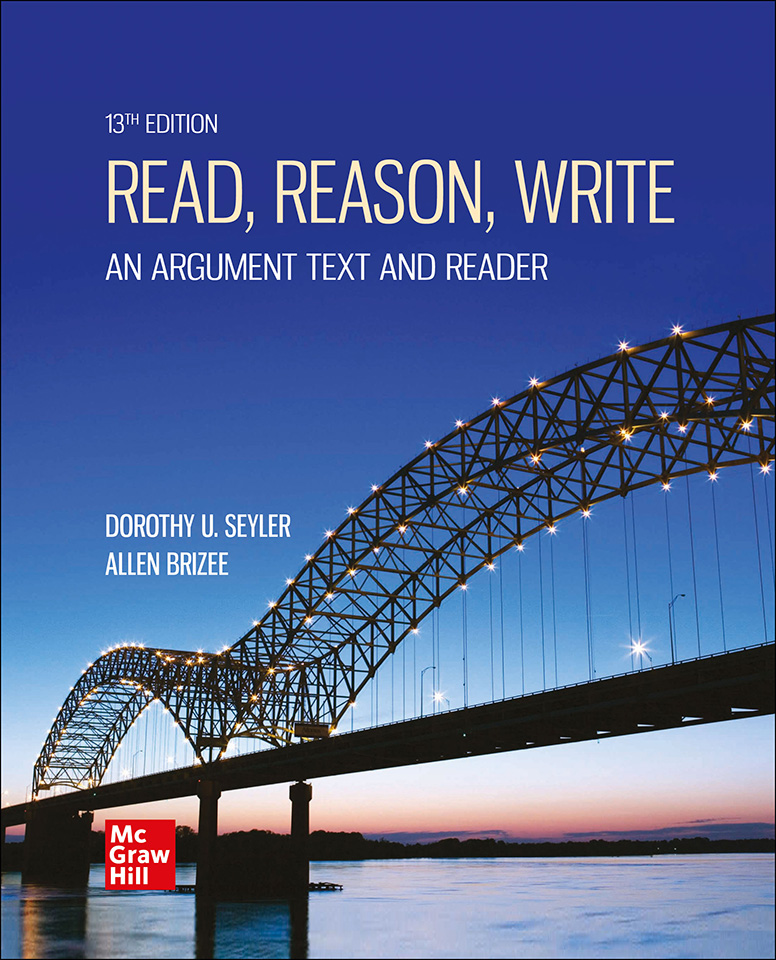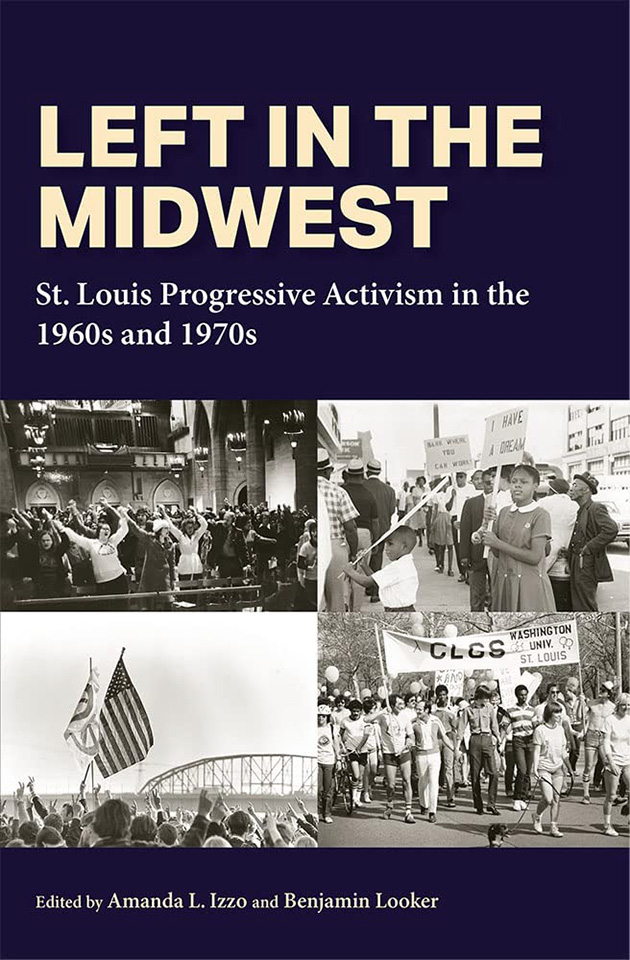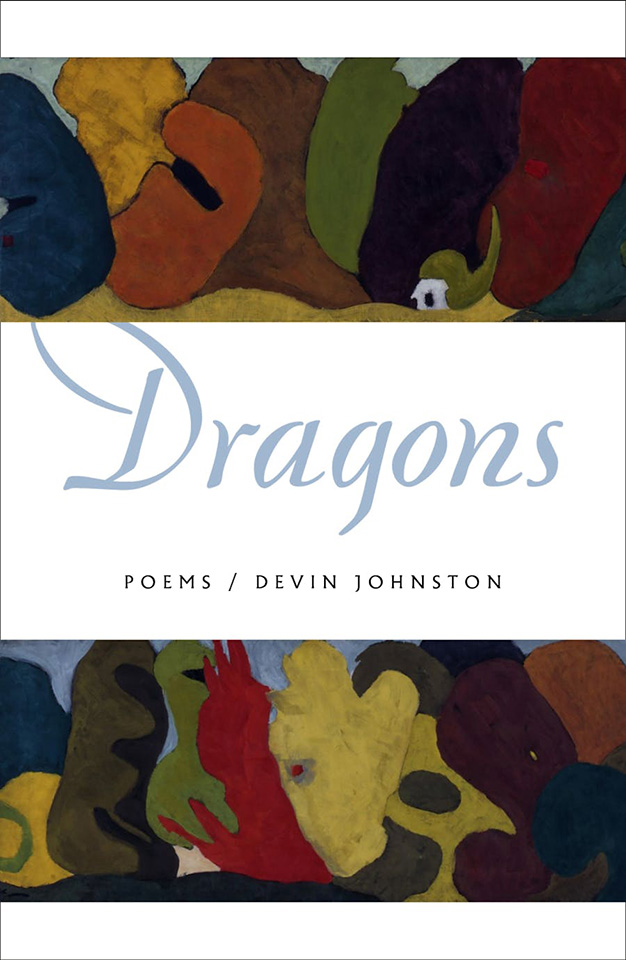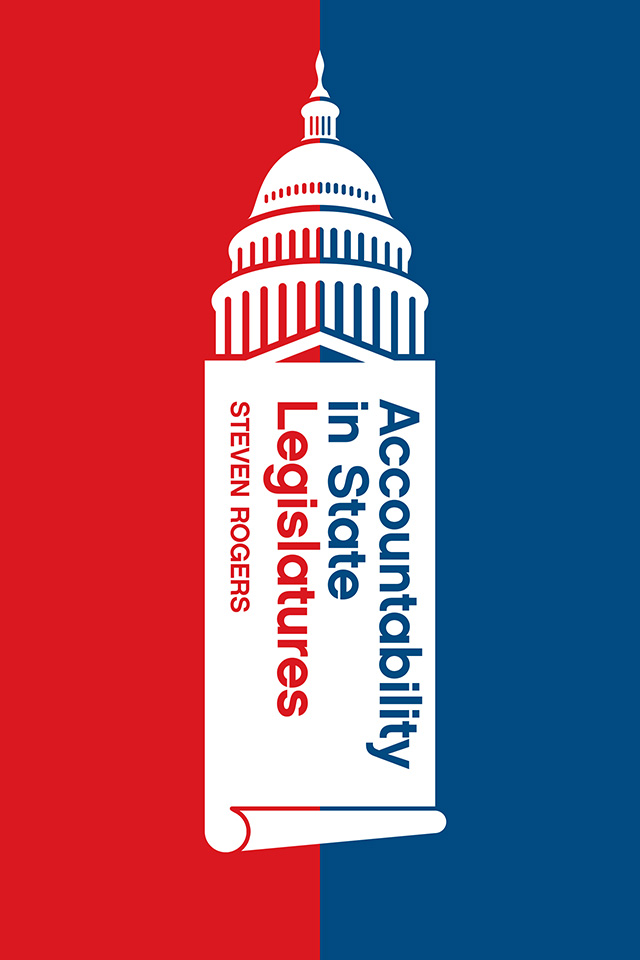Published Excellence
In 2023, Saint Louis University authors published a variety of works, providing novel insights and contributions in language development, American history, creative writing and poetry, philosophical theology, and law. The following section provides a glimpse at a selection of these works published in the past year.
Allen Brizee, Ph.D.

Read, Reason, Write: An Argument Text and Reader;
McGraw-Hill Education, 2023
“Read, Reason, Write” shows students how reading, argument, research, and analysis are interrelated and how these skills combine to develop each student’s critical-thinking ability.
A rich collection of readings provides practice for these skills, and new ideas and insights for readers. In the 13th edition, we have given greater attention to diversity, equity, and inclusion in text and illustrations, and when choosing the authors and subject matter of readings. Half of the professional readings in the text are written by Black or Indigenous writers or people of color. Decades of classroom experience join composition and rhetoric research and theory to guide the text’s content and presentation. This combination has made the text a best-seller for now 13 editions. “Read, Reason, Write” 13e is completely aligned with MLA 9e and APA 7e.
For decades, “Read, Reason, Write” has been a popular and successful textbook in composition and first-year writing courses, as well as in courses on rhetoric and argumentation. Learn more about "Read, Reason, Write: An Argument Text and Reader."
Amanda L. Izzo, Ph.D. and Benjamin Looker, Ph.D.

Left in the Midwest: St. Louis Progressive Activism in the 1960s and 1970s;
University of Missouri Press, 2022
Despite St. Louis’s mid-20th-century reputation as a conservative and sleepy Midwestern
metropolis, the city and its surrounding region have long played host to dynamic forms
of social-movement organizing. This was especially the case during the 1960s and 1970s,
when a new generation of local activists lent their energies to the ongoing struggles
for Black freedom, lesbian and gay liberation, feminist social transformations, environmental
protection, an end to the Vietnam War, and more. This volume, the first of its kind,
offers 15 scholarly contributions that together bring into focus the exceptional range
of progressive activist projects that took shape in a single Midwestern city during
these tumultuous decades.
In contrast to scholarship that seeks to interpret the era’s social-movement initiatives
in a primarily national context, the works presented in this expansive collection
emphasize the importance of locality, neighborhood, community institutions, and rooted
social networks. Documenting wrenching forces of metropolitan change as well as grassroots
resilience, “Left in the Midwest” shows us how PLACE powerfully shaped agendas, worldviews,
and opportunities for the disparate groups that dedicated themselves to progressive
visions for their city. By revising our sense of the region’s past, this volume also
expands our sense of the possibilities that the future may hold for activist movements
seeking change in St. Louis and beyond. Learn more about "Left in the Midwest: St. Louis Progressive Activism in the 1960s
and 1970s."
Devin Johnston, Ph.D.

Farrar, Straus and Giroux, 2023
“Dragons” is a collection of sonorous, sensual poems from Devin Johnston, “one of the finest craftsmen of verse we have” (Michael Autrey, Booklist). Attentive to both the physical world and our place in it, his arresting images of nature and human life ring with quiet power. An elegy for a 10-year-old hen; a fourth grader seeing a fox, his “fur waistcoat immaculate”; the sound of neighbors arguing set against the “pallid flames” of the setting sun: together, such scenes form a resonant, restrained meditation on life’s journey and “the feeling of time.” Learn more about "Dragons: Poems."
Anne McCabe, Ph.D.
A Functional Linguistic Perspective on Developing Language;
Routledge, 2021
This volume offers a comprehensive account of language development from a systemic functional linguistics (SFL) perspective, integrating theory and data from a wide range of research studies.
The book begins by taking an in-depth look at SFL theory and its focus on texts, highlighting the metafunctional nature of language and the ways in which individuals’ repertoires of meaning-making resources develop as they interact with the world and with others. Grounded in an SFL approach, the successive chapters consider, in turn, the key stages of language development, from infancy to school settings to additional, second, and foreign language learning contexts. Each chapter incorporates a range of SFL studies to demonstrate shifts in language development across these stages, and also the discussion of other functional perspectives to examine the ways in which these different approaches inform one another. A concluding chapter considers the implications of these studies for future research as well as for pedagogical practices in literacy teaching.
In its consideration of the relationship between SFL theory and its application to language development, this book will be key reading for students and scholars in systemic functional linguistics, language and education, and literacy studies.
This book has been shortlisted for an international prize, the M.A.K. Halliday Prize.
https://asfla.net/m-a-k-halliday-prize-shortlist-2023/
Evelyn Meyer, Ph.D.
Ethics in the Arthurian Legend;
Boydell & Brewer, 2023
The purpose of this collection is to draw attention specifically to the manifold ways in which the Arthurian legend speaks to the broad subject of ethics. We are accustomed to reading the Arthurian legend for the themes of chivalry, courtliness, violence, honor, and treason, and all of these subjects are deeply implicated in the concept of ethics. Each narrative speaks to the sociocultural milieu in which it was penned, and this is true when speaking of Arthurian texts from the Middle Ages through the present day. In texts as disparate as those represented in this collection including Welsh, English, French, German, Dutch, Old Norse Icelandic, and modern Arthurian narratives and games, we find clear and often intentional critiques of Arthur and his court, signaling a fundamental engagement with ethical considerations. The ultimate aim of this project was to answer the question, “Does Arthur have ethics?”
https://boydellandbrewer.com/9781843846871/ethics-in-the-arthurian-legend/
Fabien Montcher, Ph.D.
Mercenaries of Knowledge: Vicente Nogueira, the Republic of Letters, and the Making of Late Renaissance Politics;
Cambridge University Press, 2023
From Lisbon to Rome via the Gulf of Guinea and the sugar mills of northern Brazil, this book explores the strategies and practices that displaced scholars cultivated to navigate the murky waters of late Renaissance politics. By tracing the life of the Portuguese jurist-scholar Vicente Nogueira (1586–1654) across diverse social, cultural, and political spaces, Fabien Montcher reveals a world of religious conflicts and imperial rivalries. Here, European agents developed the practice of “bibliopolitics,” using local and international systems for buying and selling books and manuscripts to foster political communication and debate, and ultimately to negotiate their survival. Bibliopolitics fostered the advent of a generation of “mercenaries of knowledge” whose stories constitute a key part of 17th-century social and cultural history. This book also demonstrates their crucial role in creating an inter-national and dynamic Republic of Letters with others who helped shape early modern intellectual and political worlds.
20% Discount Promo Code: MOK2023
https://www.cambridge.org/core/books/mercenaries-of-knowledge/66F0C703A3248FEBD263C7857B3D1FD4
Steven Rogers, Ph.D.

University of Chicago Press, 2023
“Accountability in State Legislatures” makes the provocative claim that elections do little to hold state legislators accountable. Instead of serving as a referendum on state legislators’ own actions, state legislative elections are dominated by national politics. Voters do not appreciably reward or punish state legislators in the general election for their representation, state-level policy outcomes, management of the economy, or general performance, even under favorable conditions for accountability. Meanwhile, voters’ assessments of the president have three times the influence over voters’ decisions in state legislative elections compared to voters’ approval of the state legislature. “Accountability in State Legislatures” raises serious questions regarding whether fundamental assumptions of democratic theory meaningfully apply to the “laboratories of democracy” and challenges prior work’s optimistic portrayals of statehouse democracy. Learn more about "Accountability in State Legislatures."
Jonathan Sawday, Ph.D.
Blanks, Print, Space, and Void in English Renaissance Literature: An Archaeology of Absence; Oxford University Press, 2023
“Blanks, Print, Space, and Void” is a nearly 600-page inquiry into how gaps, empty spaces, pauses, and silence came to exercise their peculiar power over our imaginations in both the modern and the early-modern worlds. The book leads the reader through the history of the book and printing in the period 1470-1700 — the first age of the new technology of print. Traversing subjects as diverse as cartography, “race,” the Atlantic slave trade, the role of women in the production and distribution of books, the history and science of reading, censorship, and the creation of our modern idea of bureaucracy, the book is an “archaeology of absence.” It explores how women and men in the past began to use the spaces of the printed page as devices for storing, retrieving, and transmitting their experiences of the world around them. So, the book helps us to “see” the printed words of the past through the eyes of long-vanished readers. Although the book concentrates on many familiar writings from English literature — for example, the plays of William Shakespeare or the poetry of John Milton — it also discusses scientific texts, novels, dictionaries, almanacs, legal documents, blank forms, and even the contemporary experience of watching movies or TV shows.
https://global.oup.com/academic/product/blanks-print-space-and-void-in-english-renaissance-literature-9780192845641?cc=us&lang=en&
Eleonore Stump, Ph.D.
The Image of God: The Problem of Evil and the Problem of Mourning;
Oxford University Press, 2022
To show that suffering is defeated for a sufferer, a theodicy argues that there is an outweighing benefit which could not have been gotten without the suffering. Typically, this condition has the tacit presupposition given that this is a post-Fall world. Consequently, there is a sense in which human suffering would not be shown to be defeated even if there were a successful theodicy because a theodicy typically implies that the benefit in question could have been gotten without the suffering if there had not been a Fall. There is a part of the problem of evil that would remain, then, even if there were a successful theodicy. This is the problem of mourning: Even defeated suffering in the post-Fall world merits mourning. How is this warranted mourning compatible with the existence of an omniscient, omnipotent, perfectly good God? The traditional response to this problem is the felix culpa view, which maintains that the original sin was fortunate because there is an outweighing benefit to sufferers that could not be gotten in a world without suffering. The felix culpa view presupposes an object of evaluation, namely, the true self of a human being, and a standard evaluation for human lives. This book explores these and a variety of other topics in philosophical theology in order to explain and evaluate the role of suffering in human lives.
Philosophical Theology and the Knowledge of Persons;
Wipf and Stock, 2023
In the series of essays collected in this book, Eleonore Stump offers reflections that illustrate the nature and importance of learning from the Christian heritage in its development over the ages of the Christian tradition and its continued science. The essays show the power of this heritage in philosophical theology and in philosophical biblical exegesis. Central to the concerns they address is welcoming personal relationship offered to all human beings. The essays explore the nature of God and some puzzles about God’s interactions with human beings. They also examine the nature of human knowledge of God and argue that it can be achieved not only through propositional truths but also through knowledge of persons, and even through apprehension of beauty in nature or the arts. The book closes with an examination of what it is to will in accordance with the will of God for those who long for him.
Constance Z. Wagner, J.D., LL.M.
A Guide to Human Rights Due Diligence for Lawyers;
American Bar Association, 2023
This book explores the key components of the human rights due diligence (HRDD) process, considering practical implementation of HRDD into corporate practices and policies and treating key topics and cross-cutting issues related to HRDD. HRDD is a rapidly evolving area that is becoming a mainstay of global dialogue on corporate social responsibility. HRDD stems from the United Nations Guiding Principles on Business and Human Rights, which acknowledge that while states have a duty to protect human rights, businesses also have a duty to respect human rights in their operations. Both states and businesses have a duty to provide access to remedies for those persons who have been denied their human rights. HRDD is the process by which businesses monitor their operations to comply with such duties. This book will further lawyers’ understanding of HRDD and allow them to better advise their clients on adopting and implementing good practices to identify and address their potential and actual human rights impacts.
This book was co-edited by Corinne E. Lewis and Constance Z. Wagner and is a project stemming from their roles as co-chair and vice chair (publications), respectively, of the International Human Rights Committee of the American Bar Association Section of International Law. There are 15 chapters written by legal academics and practitioners, including both co-editors, with expertise on human rights and human rights due diligence.
https://www.americanbar.org/products/inv/book/425551802/?login
Amy E. Wright, Ph.D.
Serial Mexico: Storytelling across Media, from Nationhood to Now;
Vanderbilt University Press, 2023
No book until now has tied in two centuries of Mexican serial narratives —tales of glory, of fame, and of epic characters, grounded in oral folklore —with their retellings in comics, radio, and television soap operas.
Wright’s multidisciplinary “Serial Mexico” delves into this storytelling tradition: examining the nostalgic tales reimagined in novelas, radionovelas, telenovelas, and onwards, and how their foundational figures have been woven into society.
This panorama shows the Mexican experience of storytelling from the country’s early days until now, showcasing protagonists that mock authority, make light of hierarchy, and embrace the hybridity and mestizaje of Mexico. These tales reflect on and respond to crucial cultural concerns such as family, patriarchy, gender roles, racial mixing, urbanization, modernization, and political idealism. “Serial Mexico” examines how serialized storytelling’s melodrama and sensationalism reveal key political and cultural messaging.
In a detailed yet accessible style, Wright describes how these stories have continued to morph with current times’ concerns and social media. Will tropes and traditions carry on in reimagined serial storytelling forms? Only time will tell. Stay tuned for the next episode.
Brian Yothers, Ph.D.
Why Antislavery Poetry Matters Now;
Camden House/Boydell & Brewer, 2023
The poetry of the transatlantic abolitionist movement represented a powerful alliance across racial and religious boundaries; today it challenges the demarcation in literary studies between cultural and aesthetic approaches. Now is a particularly apt moment for its study. This book is a history of the 19th-century poetry of slavery and freedom framed as an argument about the nature of poetry itself: why we write it, why we read it, how it interacts with history. Poetry that speaks to a broad cross-section of society with moral authority, intellectual ambition, and artistic complexity mattered in the fraught years of the mid-19th century; Brian Yothers argues that it can and must matter today. He considers writers from the canonical — Whitman, Barrett Browning, Beecher Stowe, DuBois, Melville — to those whose influence has faded — Longfellow, Lydia Huntley Sigourney, John Pierpont, John Greenleaf Whittier, James Russell Lowell —to African American writers whose work has been recovered in recent decades — James M. Whitfield, William Wells Brown, George Moses Horton, Frances E. W. Harper.
https://boydellandbrewer.com/9781640140691/why-antislavery-poetry-matters-now/
This piece was written for the 2023 SLU Research Institute Annual Impact Report. The Impact Report is printed each spring to the successes of our researchers from the previous year and share the story of SLU's rise as a Jesuit preeminent research university. More information can be found here.

















